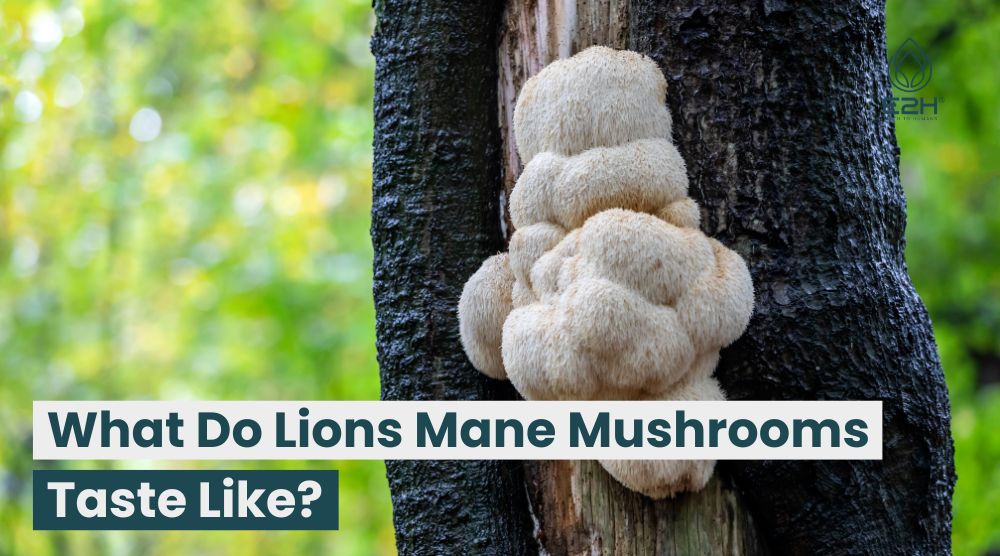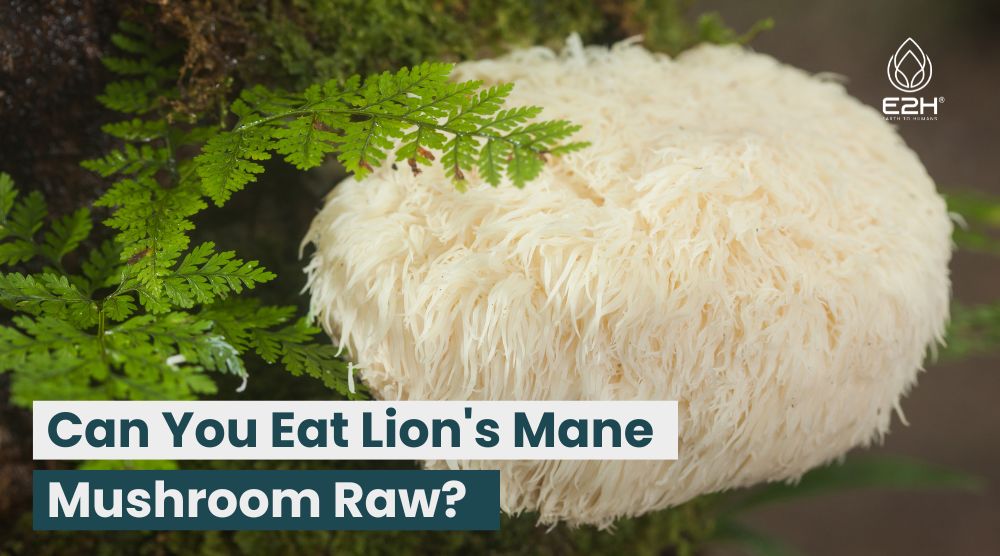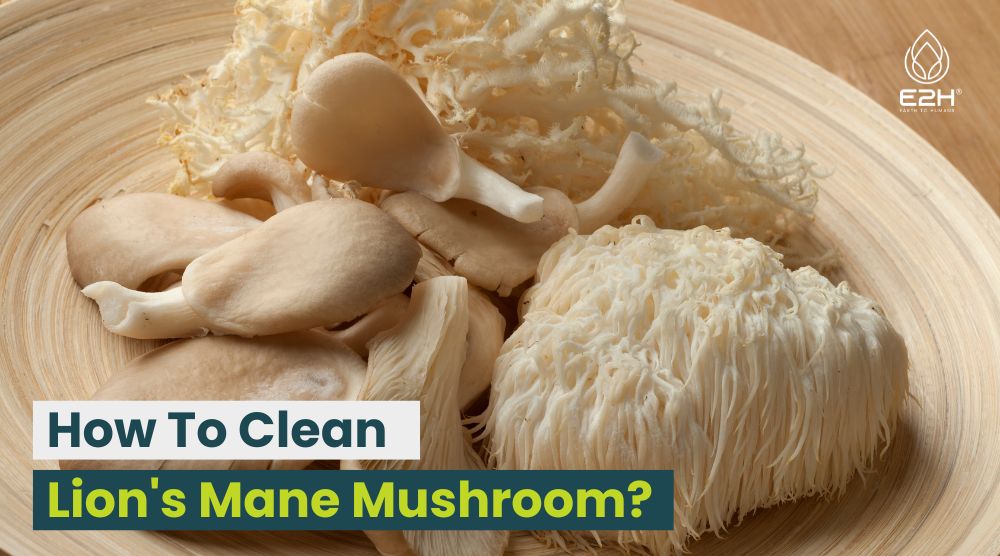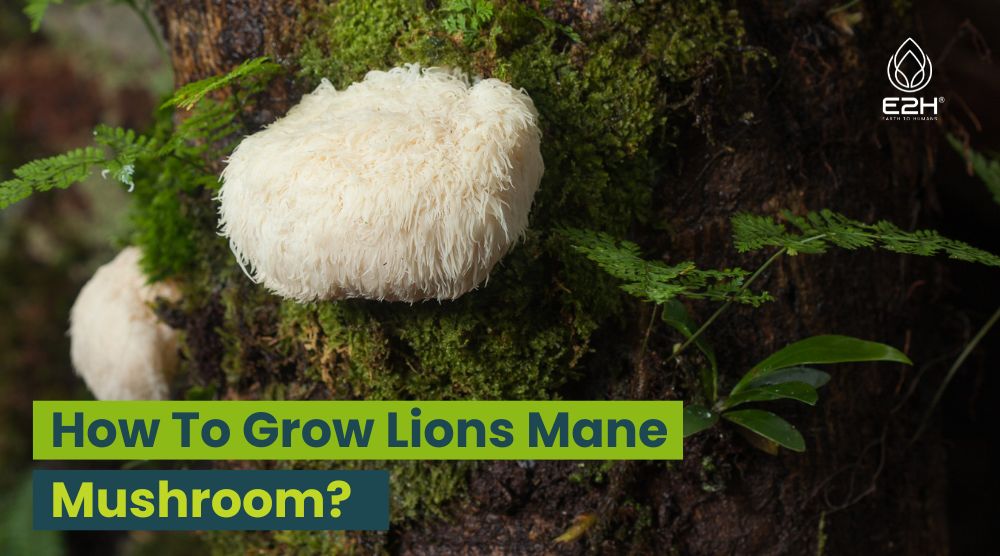Where Can I Find Lion’s Mane Mushrooms: You can find lion’s mane mushrooms in specialty grocery stores, farmers’ markets, and online retailers that offer fresh, dried, powdered mushrooms, and supplements.
What are Lion’s Mane Mushrooms?
Lion’s Mane mushrooms are a species of edible fungi mushroom that belong to the Hericium genus. Best Lion’s Mane mushrooms can be found in various regions across North America, Europe, and Asia. These mushrooms are characterized by their shaggy appearance, with long, spindly, and teeth-like structures that form a mass resembling a lion’s mane, hence their name.
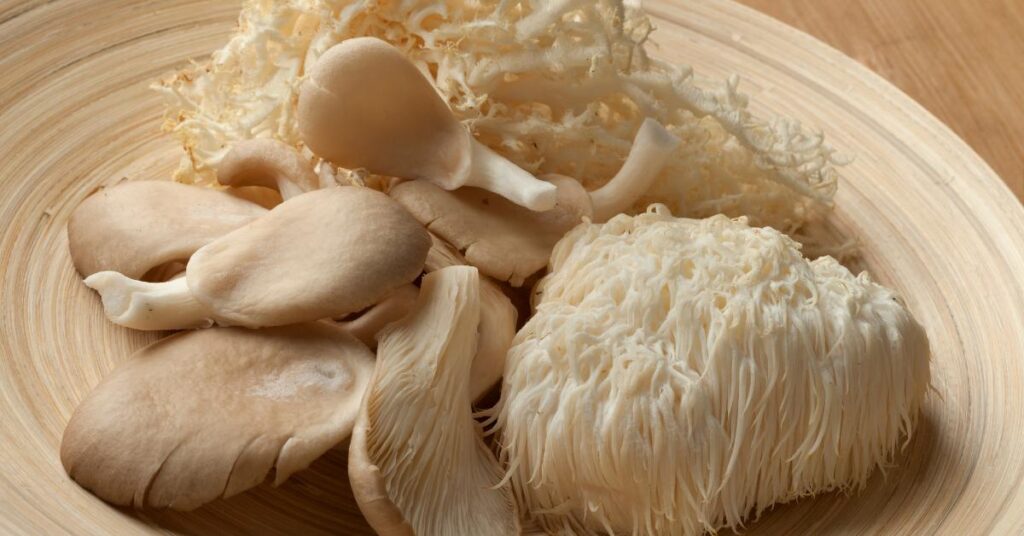
Nutritional Value of Lion’s Mane Mushrooms
Apart from their appealing appearance, meaty texture, flavor, and delicious name, lion’s mane mushrooms boast an impressive nutritional profile. They are a rich source of proteins, essential amino acids, vitamins, and minerals. Additionally, they contain bioactive compounds like erinacines and hericenones, which are believed to contribute to their potential health benefits.
Health Benefits of Lion’s Mane Mushrooms
Lion’s mane mushrooms have been used for more research two centuries in traditional medicine to treat various ailments. Recent scientific studies suggest that these mushrooms may possess several health benefits, such as promoting cognitive function, supporting the immune system, and possessing anti-inflammatory and antioxidant properties.
Finding Lion’s Mane Mushrooms in the Wild
If you’re an adventurous mushroom forager, you can seek out lion’s mane mushrooms in the wild. They are often found on decaying hardwood trees, such dead trees such as oak, beech, and maple. However, it’s crucial to exercise caution and ensure proper mushroom identification to avoid consuming toxic look-alike mushrooms.
Cultivating Lion’s Mane Mushrooms at Home
For those who prefer a more controlled environment for mushroom using, cultivating lion’s mane mushrooms at home can be a rewarding experience. You can purchase some lion’s mane mushroom re-growing kits or gather the necessary materials to create a suitable mushroom growing environment for these fungi.
Harvesting and Storing Lion’s Mane Mushrooms
When it comes to harvesting lion’s mane mushrooms, proper techniques are vital to preserve their freshness, flavour and potency. Harvesting the whole lion’s mane mushroom, at the right time and storing them correctly ensures you get the most out of your harvest of these delightful fungi and vegetables.
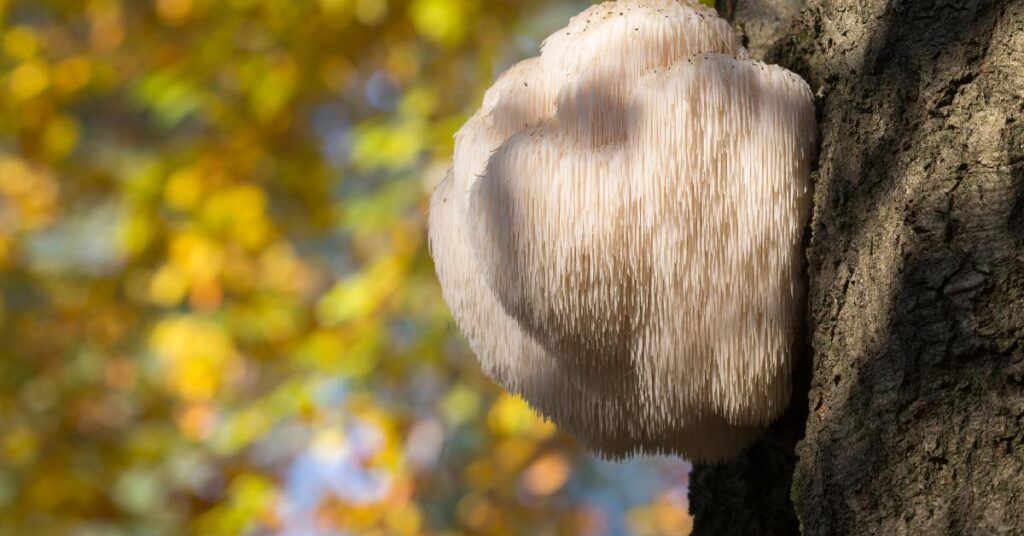
Lion’s Mane Mushrooms in Traditional Medicine
Beyond their culinary uses, lion’s mane mushrooms hold a special place in traditional medicine. They have been used in Asian cultures to support overall health and well-being, particularly for their potential effects on the body and nervous system.
Lion’s Mane Mushrooms in Culinary Delights
Lion’s mane mushrooms offer a delightful culinary experience. Their unique texture and flavor make them a versatile ingredient in various dishes. From the stir fry off stir-fries to soups and even vegetarian “pulled pork,” these three lions mane mushrooms can tantalize taste buds.
The Rising Demand for Lion’s Mane Mushrooms
The increasing interest in natural remedies and alternative medicine has contributed to the surge in demand for lion’s mane mushrooms. People are seeking natural ways to reduce symptoms of anxiety and to support their health, and these mushrooms have captured their attention.
Scientific Research and Studies
Scientific research on lion’s mane mushrooms has been gaining momentum, and the results are promising. Studies on lions mane, have shown potential benefits in neurological conditions, such as Alzheimer’s and Parkinson’s disease, igniting further interest in these fungi’s medicinal properties.
Possible Side Effects and Precautions
While lion’s mane mushrooms are generally safe to consume, some individuals may experience mild side effects. Allergic reactions are rare but possible. Additionally, those with certain medical conditions or taking specific medications should exercise caution.
Buying Lion’s Mane Mushrooms
If you’re not keen on foraging or cultivating, fear not; lion’s mane mushrooms can be found in various forms. Many specialty E2H, grocery stores, farmers’ markets, and online retailers offer fresh, dried, and powdered lion’s mane mushrooms, as well as supplements.

Making Informed Choices
When purchasing lion’s mane mushrooms or supplements, it’s essential to choose reliable sources. Look for products that are certified organic and undergo third-party testing for quality and purity.
Where do you find lion’s mane mushroom?
Lion’s mane mushrooms can be found in various regions across North America, Europe, and Asia. They are commonly spotted in temperate forests, particularly on decaying hardwood trees like oak, beech, and maple. For those interested in foraging for lions mane here, the best approach is to explore these wooded areas during their fruiting season, which typically occurs in the late summer to the fall or early autumn. However, it’s essential to exercise caution and proper mushroom identification skills to avoid consuming toxic look-alike mushrooms.
Is lion’s mane illegal in the US?
No, lion’s mane mushrooms are not illegal in the United States. They are considered a legal and edible fungus. In fact, they are gaining popularity not only for their culinary appeal but also for their potential health benefits. Lion’s mane mushroom is readily available for purchase in various forms, including fresh, dried, and powdered, as well as in the form of supplements. However, as with any mushroom foraging or wild harvesting, it’s essential to ensure proper identification to avoid any potential risks.
How to get lion’s mane mushroom?
There are several ways to obtain lion’s mane mushrooms. If you prefer a hands-on approach, you can go foraging in suitable wooded areas during the fruiting season. For those who don’t have access to wild mushrooms or prefer a controlled environment, the lion’s mane mushroom can be cultivated at home.
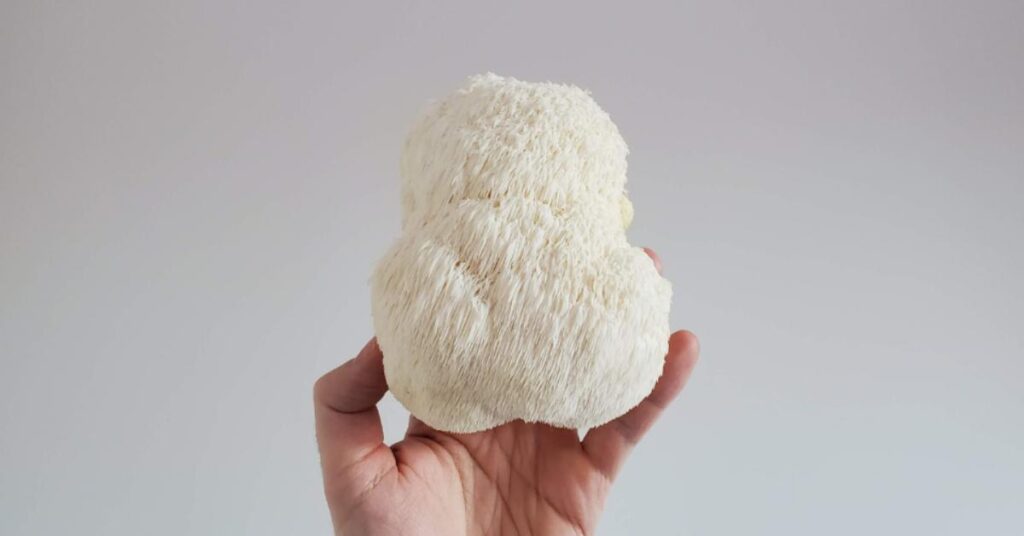
Lion’s mane Mushroom full-growing kits are available, or you can gather the necessary materials to create a suitable growing environment for these mushrooms. Additionally, lion’s mane mushrooms can be purchased from specialty E2H, grocery stores, farmers’ markets, and online retailers in various forms.
Does lion’s mane grow in Georgia?
Yes, lion’s mane mushrooms can be found in the state of Georgia, United States. The climate and habitat of Georgia make it suitable for the growth of various mushroom species, including the lion’s mane mushroom. These mushrooms can often be found in wooded areas with hardwood trees. As with any foraging activity, it’s crucial to have a good understanding of wild mushroom identification to ensure you are harvesting the correct species and avoid any potentially harmful varieties.
How to Forage Lion’s Mane Mushroom. Identify and Cook Stir Fry Recipe. Medicinal Properties Benefits
FAQs
Can lion’s mane mushrooms cure Alzheimer’s disease?
While some studies have shown potential benefits for cognitive health, lion’s mane mushrooms are not a cure for Alzheimer’s disease. They may support brain health, but further research is needed.
Are lion’s mane mushrooms safe for pregnant women?
Pregnant women should consult their healthcare provider before adding lion’s mane mushrooms to their diet, as individual health considerations vary.
What is the best way to cook lion’s mane mushrooms?
Lion’s mane mushrooms can be sautéed, cooked, roasted, or used in soups and stews. Experiment with different mushroom meat and butter and mushroom cooking methods to taste and find your own recipe and preferred taste and texture of meat and butter with mushroom using.
Do lion’s mane mushrooms have a shelf life?
Fresh lion’s mane mushrooms have a no flavor but limited shelf life and are best consumed within a few days. Dried eat lion’s mane mushrooms taste and can be stored for a more extended period if kept in a cool, dry place.
Are there any vegan lion’s mane mushroom recipes?
Yes, there are plenty of vegan recipes that incorporate lion’s mane mushrooms. Vegan “pulled pork” sandwiches and creamy, lion’s mane mushroom powder pastas are just a few examples.
Conclusion
Lion- grow lion’s mane and mushrooms stand as both a remarkable natural wonder and a delightful culinary treat. From supporting cognitive function to enhancing the immune system, these fungi offer a host of potential health benefits. Whether you venture into the wild, cultivate them at home, or purchase them from reputable sources, the grow lion’s mane and mushrooms are a fascinating addition to a healthy lifestyle.



